Junior doctors' strike: Give us credible offer and we'll end strikes, says BMA
- Published
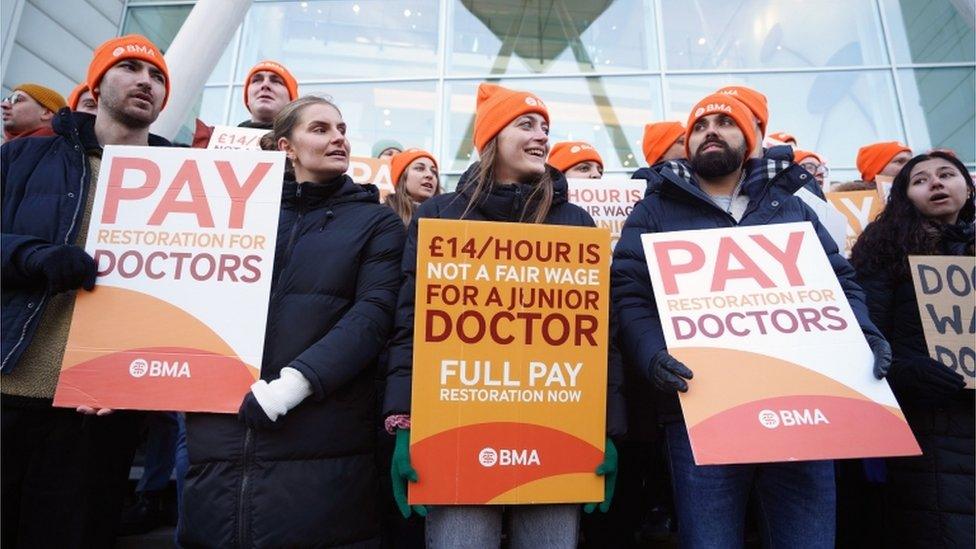
The British Medical Association (BMA) has said it would be prepared to end its six-day walkout in England if the government made it a "credible" offer.
Junior doctors started strike action at 07:00 GMT on Wednesday in their dispute over pay, in what could be the longest stoppage in the history of the NHS.
BMA junior doctor leader Dr Vivek Trivedi said he would return to talks if the government made a fresh offer.
Ministers say they are not prepared to negotiate while strikes are ongoing.
In an interview with the BBC, Dr Trivedi said: "Anyone from the government could still come to us today and if we thought that offer was credible, and if we can resume talks and build on that, then we can stop our strike action for the rest of the week."
While the BMA - which represents doctors in the UK - has asked for a 35% pay increase, he said it did not necessarily need to have that all in one go.
"We're not even saying it has to happen in one year.
"We are very happy to look over details that would span a number of years - but what we need to do is to start a way towards that, and not further that pay erosion."
Health Secretary Victoria Atkins said junior doctors had to call off their strike before she was prepared to get back to the negotiating table.
She said she wanted to find a "fair and reasonable solution to end the strikes once and for all".
Junior doctors received a pay rise averaging nearly 9% this financial year - and during talks at the end of last year, the option of an extra 3% on top of that was discussed.
But those talks ended in early December without a deal being reached.
Routine hospital services, such as planned operations including hip and knee replacements and check-ups, will be hugely disrupted in the coming days.
This is because senior doctors are being drafted across to provide cover in emergency care.
But that has not been enough in some places.
Several NHS trusts reported significant waits in A&E, with some declaring a critical incident, meaning bosses were concerned they could not provide critical services for patients.
Queen Alexandra Hospital in Portsmouth said its A&E department was "full" as it declared a critical incident - its third in three months.
In Nottinghamshire, the entire Nottingham and Nottinghamshire NHS system declared a critical incident at 16;30 GMT.
Cheltenham A&E has been closed with patients diverted elsewhere, Bolton NHS Foundation Trust said it was facing "extreme pressure" with waiting times in A&E of "up to 11 hours", Warwick Hospital warned it was under "extreme heightened pressure" while Airedale Hospital said its emergency department was "exceptionally busy".
Health officials in East Sussex, South Tees, Gateshead, Greater Manchester, Berkshire, Rotherham and Harlow in Essex also reported being "busy".

'It's so tiring to do this 24/7 cover'
By Hugh Pym, Health Editor
I've spent Wednesday at University College London Hospitals NHS Foundation Trust (UCLH). The central London hospital believes that nearly half of its junior doctors will strike this week, based on past walkouts.
UCLH's chief executive David Probert said the "vast majority" of routine appointments here would have to be cancelled, because senior doctors are being moved across to provide cover in emergency care.
This strike coincides with an increase in other pressures, meaning medics here are having to help out other hospitals in north London, which are struggling with rising patient numbers and ambulance arrivals.
Dr Ben Lovell, an acute medicine consultant, told me the emergency department was extremely busy on the first day of the strike.
"Every bed you see here has a patient in it," Dr Lovell said. "They're waiting to move to an inpatient bed up in the hospital but there's no bed for them to move to. We always say the emergency department has to have elastic walls, because we can't switch off the tap at the front door - they keep coming in."
He said although he supports the junior doctors' action, he expects to work 70 hours over the six-day strike, covering absences in the emergency department.
"It's so tiring to do this 24/7 cover, we can't do it for much longer than the six days we're going to attempt to do now. I enjoy my work, but it's going to be busy and it's going to be hard, and after the sixth day I'm going to be pretty exhausted."
Dominika Hacia, whose job is to tell patients their procedures have been cancelled, told me it was difficult to break the news to people.
"They are in pain as well, so I understand that they can be aggressive. Although I'm trying to calm them down and I'm trying to find a new date and I'm trying to make things right. That's what we aim for."
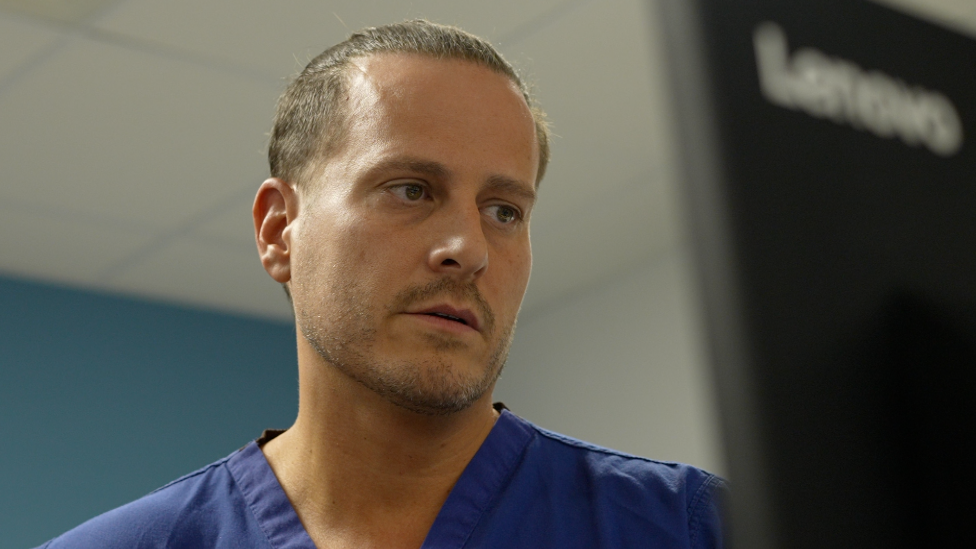
UCLH acute medicine consultant Dr Ben Lovell said he expects to work 70 hours over the six-day strike to cover absences

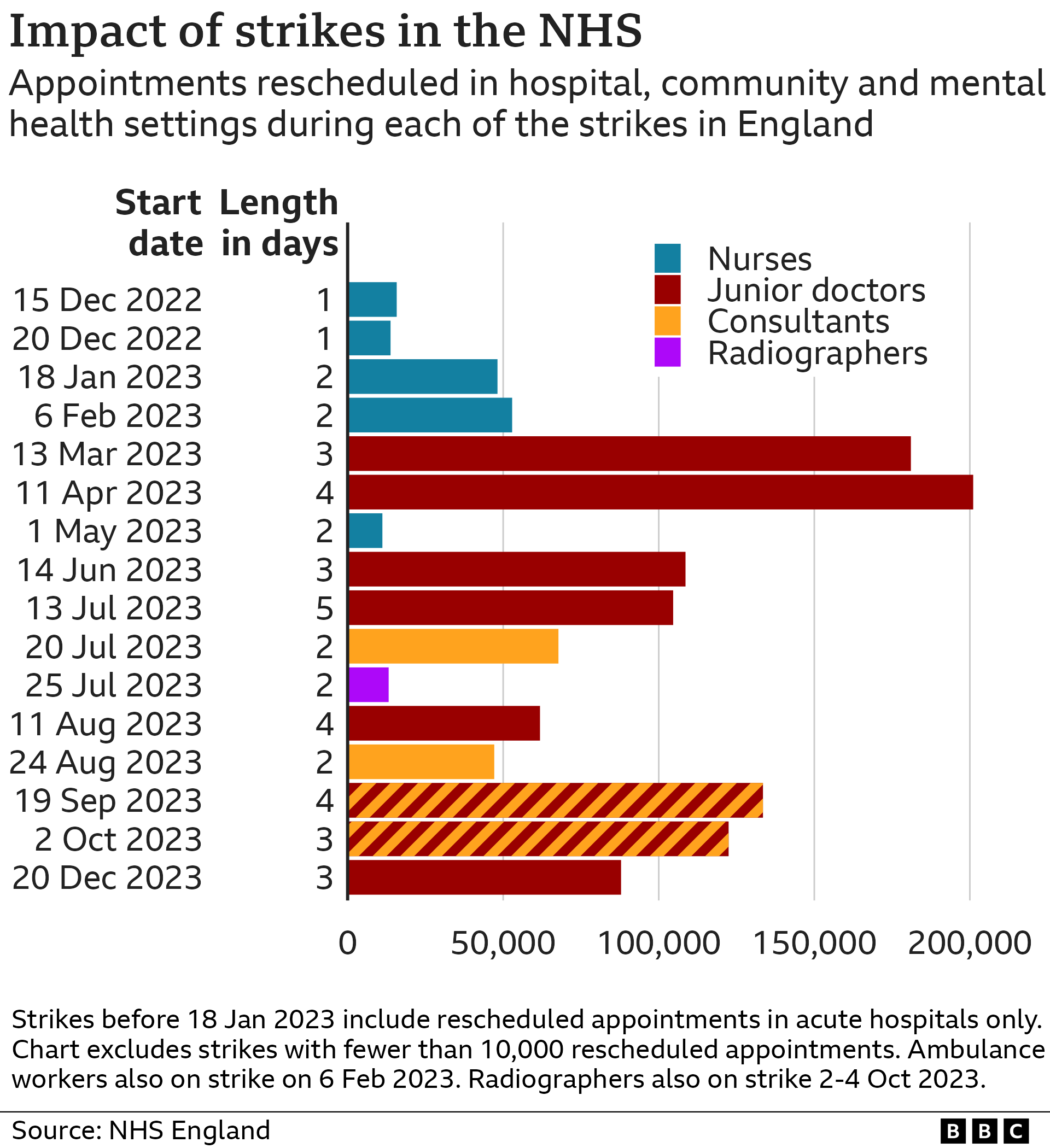
NHS bosses always warned this walkout - the ninth by junior doctors - was likely to be the most difficult.
NHS England medical director Prof Sir Stephen Powis said rising rates of respiratory illnesses, such as Covid and flu, and staff sickness were making this walkout "very challenging" in what is always one of the busiest times of the year for the health service.
There is particular concern among NHS bosses about some urgent areas of cancer care and maternity services, such as emergency caesareans.
An appeal by NHS Employers, which represents hospitals, for a strike exemption for urgent cases in these areas was rejected by the BMA.
NHS England is advising patients in a life-threatening emergency to call 999 as usual, but for everything else to use 111.
Patients who have routine appointments should attend as normal unless they have been told otherwise.
There is also expected to be some disruption to GP services.
Paul Farmer, of Age UK, said the timing of this set of strikes was particularly "alarming".
"We are deeply concerned about the risk this poses to older people's health - it will be difficult to guarantee safe and effective care for everyone who needs it."

Are you a junior doctor with a view on the strike? Are you a patient affected? Email haveyoursay@bbc.co.uk, external.
Please include a contact number if you are willing to speak to a BBC journalist. You can also get in touch in the following ways:
WhatsApp: +44 7756 165803
Tweet: @BBC_HaveYourSay, external
Please read our terms & conditions and privacy policy
If you are reading this page and can't see the form you will need to visit the mobile version of the BBC website to submit your question or comment or you can email us at HaveYourSay@bbc.co.uk, external. Please include your name, age and location with any submission.

Sign up for our morning newsletter and get BBC News in your inbox.

- Published27 November 2023
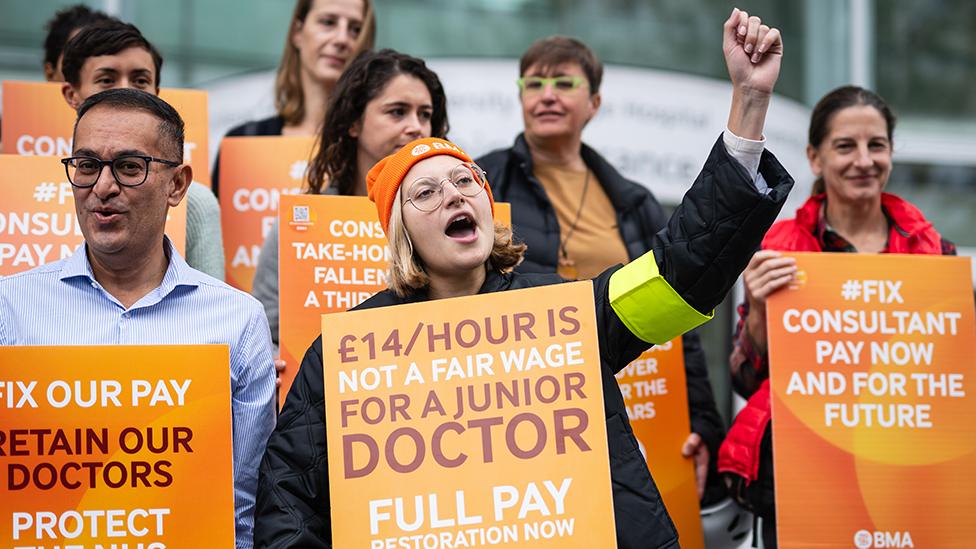
- Published28 November 2023
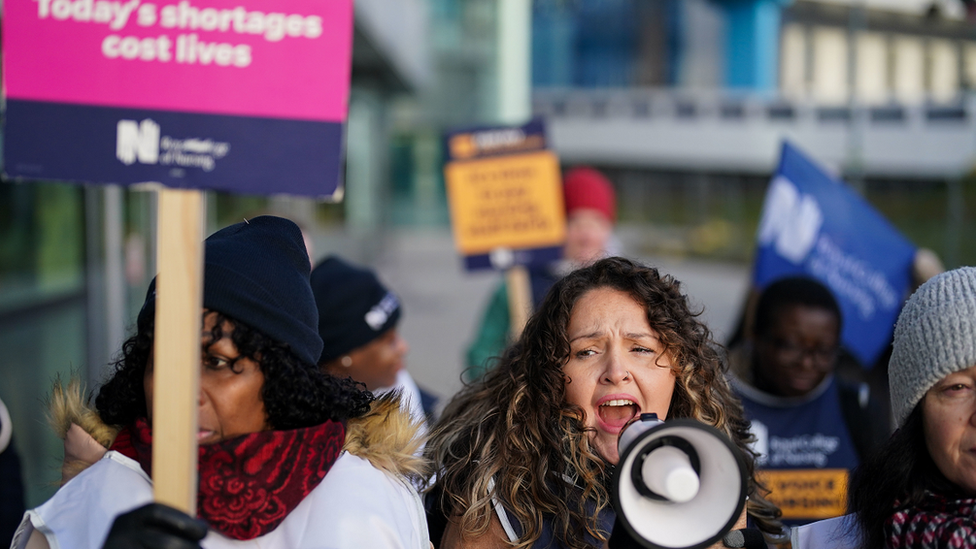
- Published2 May 2023
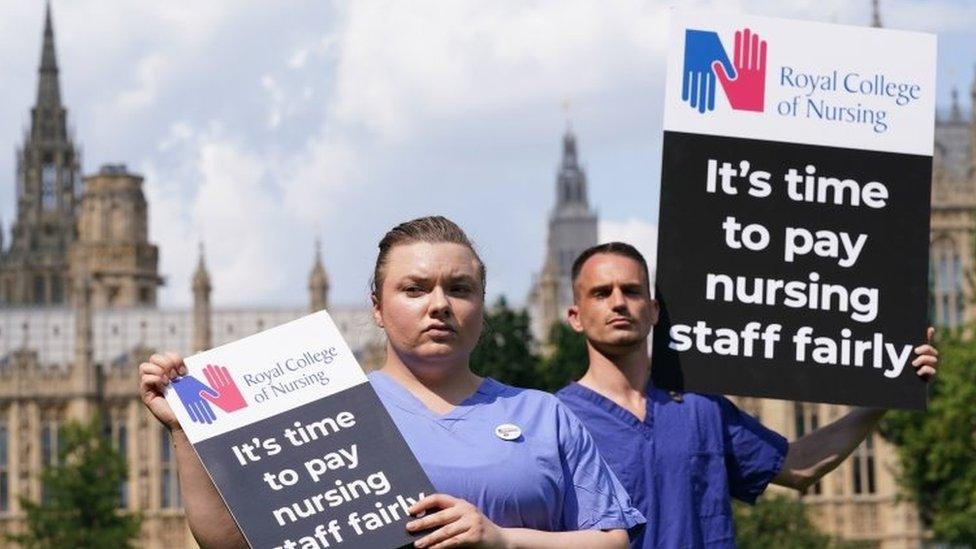
- Published9 August 2023
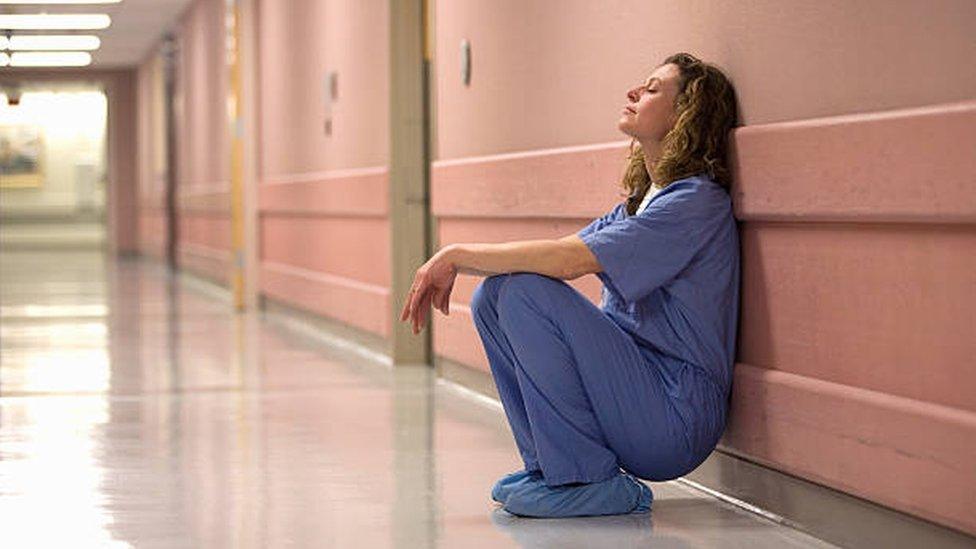
- Published2 May 2023
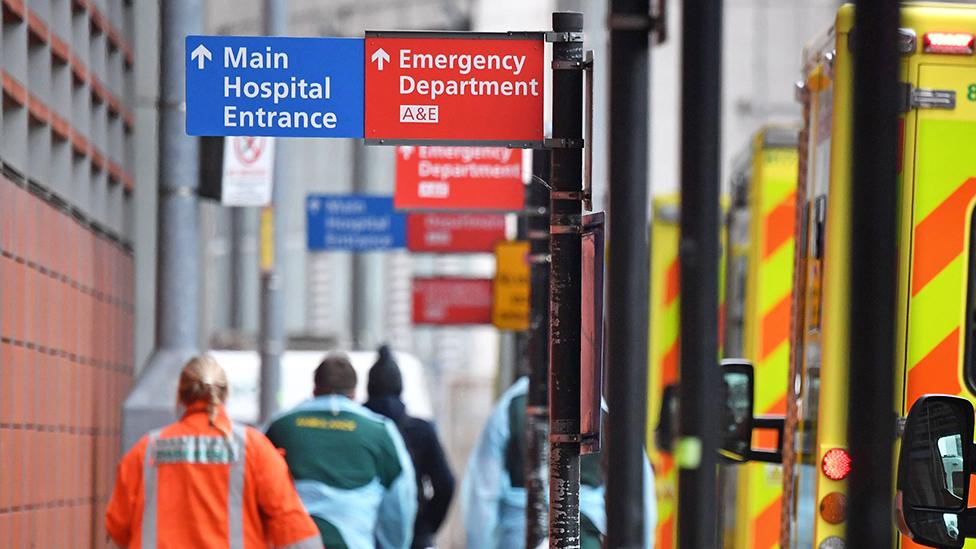
- Published21 July 2023
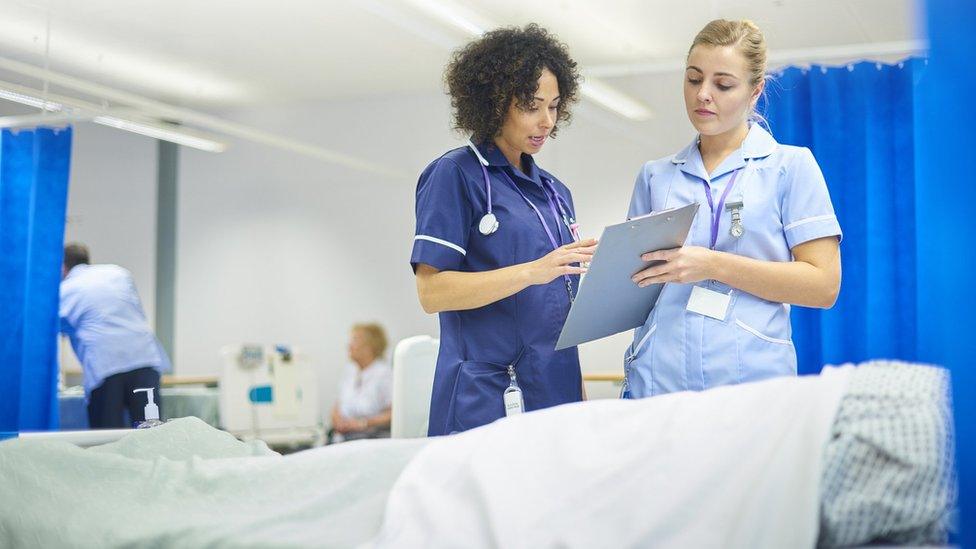
- Published11 August 2023

